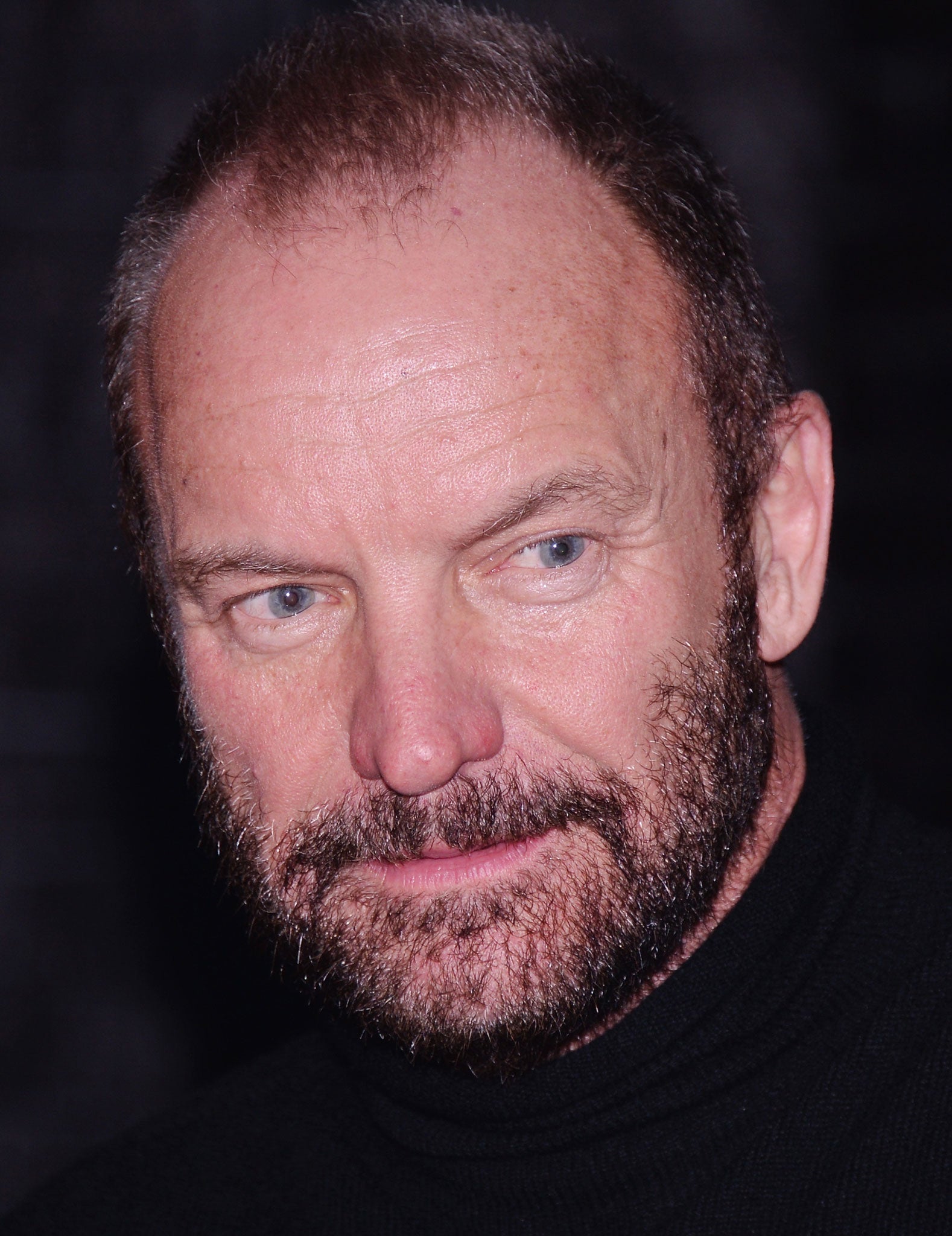TED Radio Hour, review: 'Sting was in the way. I'm sick of Sting,' said Sting
The singer talked about the notion of being an artist in an episode called The Source of Creativity

Your support helps us to tell the story
From reproductive rights to climate change to Big Tech, The Independent is on the ground when the story is developing. Whether it's investigating the financials of Elon Musk's pro-Trump PAC or producing our latest documentary, 'The A Word', which shines a light on the American women fighting for reproductive rights, we know how important it is to parse out the facts from the messaging.
At such a critical moment in US history, we need reporters on the ground. Your donation allows us to keep sending journalists to speak to both sides of the story.
The Independent is trusted by Americans across the entire political spectrum. And unlike many other quality news outlets, we choose not to lock Americans out of our reporting and analysis with paywalls. We believe quality journalism should be available to everyone, paid for by those who can afford it.
Your support makes all the difference.The best thing on the radio this week featured an interview with Sting.
Hey, come back! Yes, I know he's a plank and, no, I haven't lost my mind. Just trust me when I tell you that this programme examined greater themes than the impossibly smug life of a mega-star.
In fact, it was about creativity and inspiration and how you can find it and how you can just as easily lose it. It was about how unfettered creativity isn't learned, it is lost as we move through childhood. It was about how artists, writers and, yes, musicians find themselves clinging on to it, sometimes by their fingernails. It was really rather great.
TED Radio Hour is a weekly US show built around the world of ideas and extrapolated from selected TED talks. Previous episodes have looked at compassion, courage, money, privacy, learning, silence and our relationship with animals.
It's already broadcast on the American network NPR (where it has been going since 2013) and is available online in weekly podcasts. Now it has been picked up by Radio 4 Extra, which, having recently woken up to the delights of This American Life and Serial, is finally paying attention to the podcasts coming from across the pond.
And so, Sting. In an episode called The Source of Creativity, the singer talked to the presenter Guy Raz about the notion of being an artist, which he described as "the ability to take a risk, to put yourself on the line and risk ridicule".
He recalled how his own creativity sprang from being the son of a milkman and having the opportunity, while accompanying his dad on his morning rounds, to daydream. But one day, as an adult several decades into his career, the daydreaming came to an abrupt end.
"I would look at the page every day thinking, 'What am I going to write about?'" he said. "And day followed day, and weeks turned to months, and pretty soon you've got a couple of years when you haven't put pen to paper."
Sting's creative block actually lasted for eight years, something we can all make hilarious jokes about but which to him was devastating, and you could hear that devastation in his voice. It was only by revisiting his childhood and remembering the people he grew up around that he was eventually able to reclaim his muse. It was about stepping outside of himself and putting aside his ego – "Sting [was] in the way, I'm sick of Sting," he said. And lo, the songs started to flow again.
Raz's investigations didn't stop with pampered pop stars. He spoke to the musician and scientist Charles Limb about where creativity comes from. "It's magical but it's not magic," he said. "It's a product of the brain." Limb knew this because, by way of an experiment, he had crammed a load of jazz musicians into his lab and attached electrodes to their heads as they played.

Watch Apple TV+ free for 7 days
New subscribers only. £8.99/mo. after free trial. Plan auto-renews until cancelled

Watch Apple TV+ free for 7 days
New subscribers only. £8.99/mo. after free trial. Plan auto-renews until cancelled
Raz also talked to the educator Sir Ken Robinson who talked about how schools kill creativity, how we have become better workers than thinkers and reminded us of the famous Picasso quote: "All children are artists. The problem is how to remain an artist once you grow up."
What might have been a slippery, airy-fairy theme was handled here both with intellectual rigour and a lightness of touch. It left us feeling that creativity isn't the preserve of the self-indulgent few, but that it is in us all. If only we had the courage to let it breathe.
Join our commenting forum
Join thought-provoking conversations, follow other Independent readers and see their replies
Comments